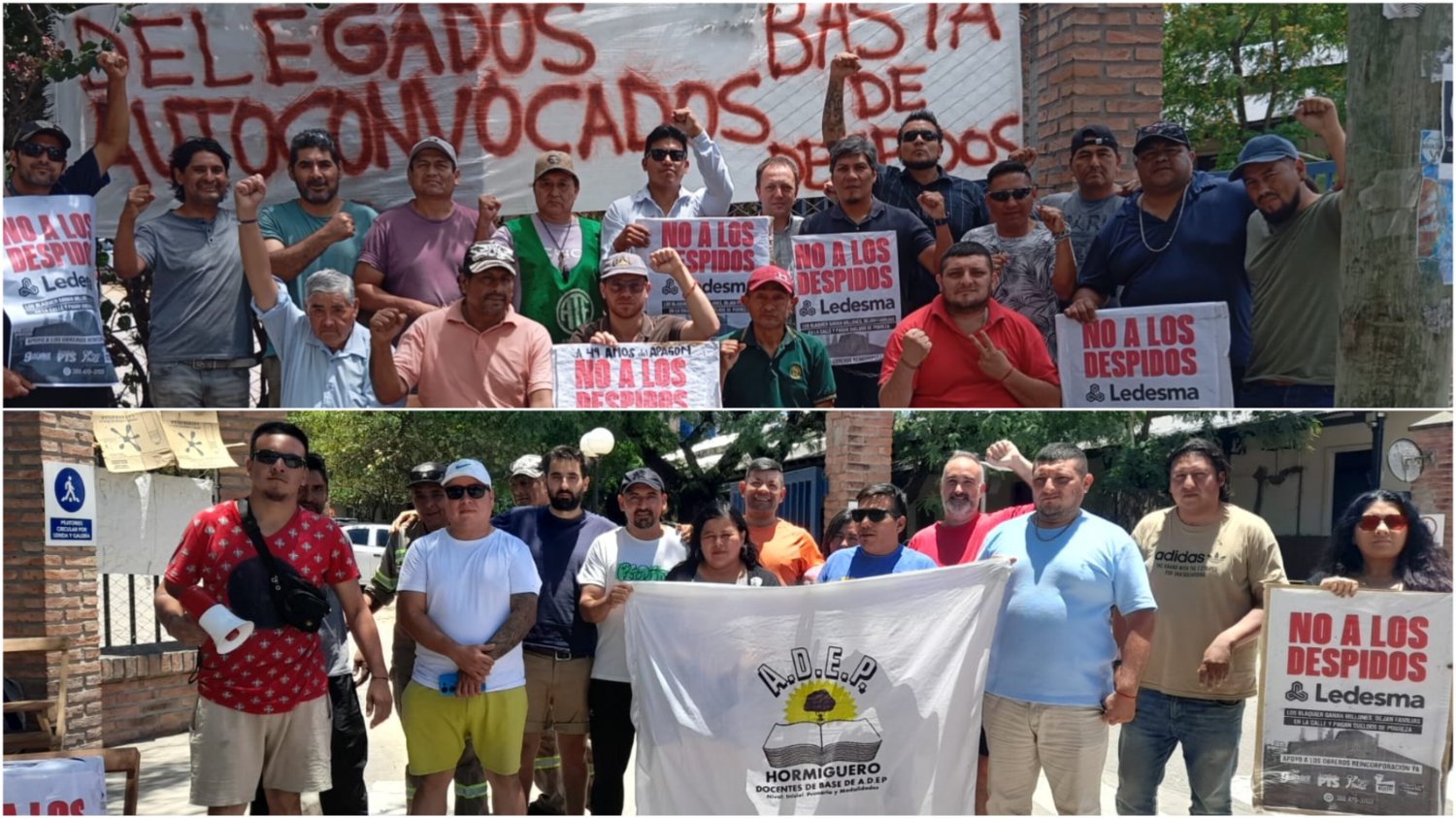
At the beginning of the year, the Ledesma group reported in a statement that it was starting a competitiveness plan. Thus he raised the starting flag for the layoffs that continued throughout the year (and nothing indicates that they will stop). There are already 230 layoffs in production, the vast majority of them sugar workers, and 90 layoffs in the management area.
Ledesma’s business, despite its variety of products (sugar, alcohol, citrus fruits, juices, oils, livestock, cereals, paper, biofuels), continues to have sugar and alcohol its productive heart, which represents 52% of its annual income.
In the harvest 24/25 (112th fiscal year) an increase in the cane production compared to the previous year (10.8%; 3,470,656 tons), but with lower sales in the domestic market (-17.1%; 214,700 tons), which they attribute to the recession. In part, the drop was offset by a tripling of foreign sales. Exports reached 228,900 tons of sugar. Chile is the main destination for Ledesma sugar, which represents 23% of its imports of this product.
Between June and August, export dynamics are accentuated with a 100% increase in sales abroad (information review). While the sales to the domestic market recover growing 10% compared to last year, with stable prices. This was not the case with the evolution of sugar production, which fell by 9.6%.
He sugar-alcohol sector According to Ledesma’s balance sheet, the 24/25 harvest presented a “stable year in alcohol production and demand.” Compared to the previous year, Ledesma produced 30% more, 91,800 m3.
On the side of the investmentsthe company highlights allocating 21 million dollars to “agricultural machinery, cane fields, technology applied to the field and modernization of the factory.” When discounting the depreciation of machinery, investments in the sugar and alcohol sector yield a positive net result of $1,634,195,000 (1.48 million dollars, at an exchange rate, $1,100 = US$1).
In the business of fruits and games Ledesma concludes, “the 24/25 fiscal year ended with very good results, thanks to the high volume of own production, the favorable orange juice market and the performance of essential oils…”. However, at the beginning of the harvest this year they laid off 20 workers in the rural-citrus sector.
Regarding the operating resultLedesma in the 112th fiscal year recorded a net loss in its continuing operations of $25,178 million (last year it earned $56,422 million) and attributes it to “an 11% reduction in gross profit and a gain in the income tax charge for the year.”
This performance, although not reversed, shows some improvement. In the information review for the first quarter of fiscal year 25/26, June-August, it is reported that the operating loss is reduced by half (compared to the same period last year), something that is attributed to the drop in administrative costs (-20%) and marketing costs (-5%). To which we add, the fall in production costs (-11%) and in particular in wages (-7.2%).
By the way, The economic loss can also be relativized if we consider three aspects. The first, the dividend payment now distributed during the previous year to the shareholders (90.45% corresponds to 5 members of the Blaquier family) which was $21,567 million – this is equivalent to 86% of the losses declared in the last year. The second, that during the exercise Ledesma took credits for $128,667 million, the majority of this debt is denominated in dollars. The third, transferred $6,756,866 million to a linked financial companyBridgeport Investments LLC, located in Delaware, a state associated with the questioned tax havens in the United States.
So, What happens to Ledesma’s profitability? An answer is provided by the same company in its balance sheet, “context of depressed – internal – demand… prices that, in many cases, have not kept pace with the evolution of costs.”
For Ledesma in this “new scenario” we must move forward with “different strategic lines” that combines: management changes (Diego Lerch took over before the departure of Javier Goñi), adjustment and layoffs in the administration area, with an attack on production workers and, in particular, on sugar workers.
What is observed is a drop in profitability margins after recent years where profits were records, given that the dynamics of lower prices find that costs fall but not with the same intensity. And in this framework the company aims to lay off, more to scare and divide the workers, a matter of deepening the adjustment on salary and working conditions. Salary with respect to total costs has fallen in the last 7 years.
So, The attack on the sugar workers is not a coincidence. Not only because of its strategic position, in the hard productive core of the company and which can therefore attract the rest of the workers. The sugar producers are the ones who have led tough fights in the last fifteen years, recovering a body of 48 delegates, from which they have been key to guaranteeing forceful measures. But also in questioning the union leaderships that did not face the layoffs and the adjustment with downward parities. Something that with the new leadership is repeated again.
Hence, these dismissals, in many cases of former union delegates and activists, confirm that the company has a policy of union discipline as we stated months ago.
Support for workers and their families against layoffs, for union democracy, is key to gaining strength when preparing resistance to the continuity of the attack plan: labor reform. Something that Ledesma and other large employers’ associations are crying out to Milei, who, for his part, is garnering support from governors like Sadir so that it is approved in Congress during the summer.
Source: www.laizquierdadiario.com

